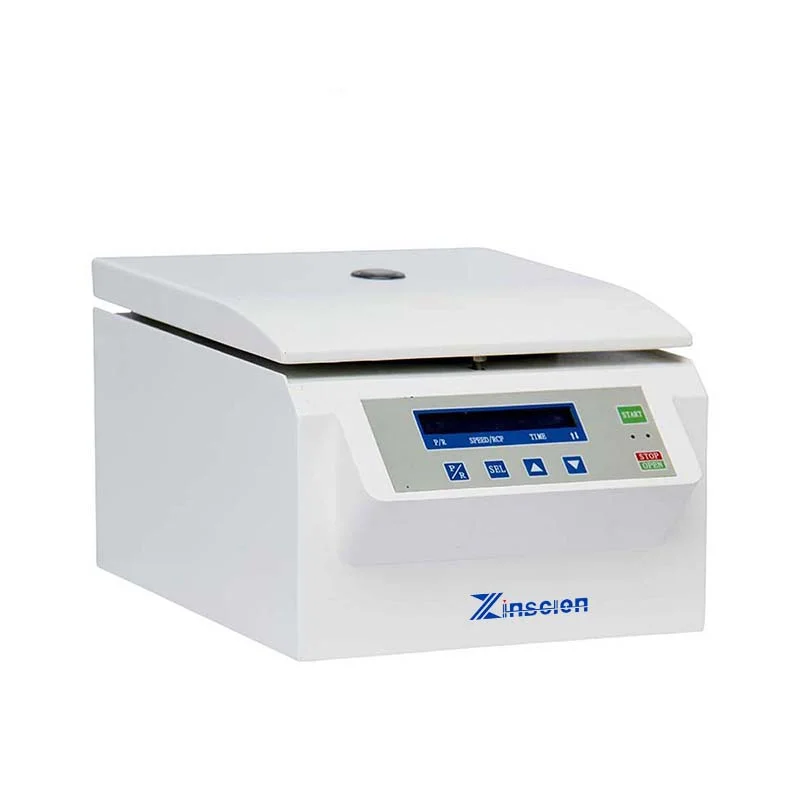- This topic is empty.
-
AuthorPosts
-
2025-07-09 at 9:33 am #4669
A laboratory centrifuge is an instrument that plays a crucial role in various scientific and medical fields. It utilizes the centrifugal force generated by the rotating rotor to separate substances of different densities and particle sizes in suspension or emulsion. This process is vital for analyzing samples, often enabling researchers and clinicians to gain insights into the composition and properties of biological materials. Among the various types of centrifuges, the micro hematocrit centrifuge stands out as an efficient tool specifically designed for blood separation in clinical testing.

What is a Micro Hematocrit Centrifuge?
A micro hematocrit centrifuge is a compact, high-speed centrifuge specifically engineered for the rapid separation of blood components, such as red blood cells, white blood cells, and plasma. Its design focuses on providing accurate and reproducible hematocrit readings, which are essential for assessing an individual's red blood cell volume as a percentage of the total blood volume. This information is crucial for diagnosing anemia, monitoring blood loss, and guiding transfusion therapy.
Key Selling Points of Micro Hematocrit Centrifuges
1. Compact and Portable Design
One of the most appealing features of micro hematocrit centrifuges is their compact and portable design. Unlike larger, bulkier centrifuges, these micro devices can be easily transported between different locations within a healthcare facility or even to remote settings. This portability makes them ideal for point-of-care testing, where rapid and accurate results are needed without the delay associated with transporting samples to a centralized laboratory.
2. High-Speed Separation
Micro hematocrit centrifuges are equipped with powerful motors capable of achieving high rotational speeds in a short period. This high-speed performance allows for rapid separation of blood components, reducing the overall turnaround time for test results. Faster separation means quicker diagnoses and more timely interventions, ultimately improving patient care.
3. Precision and Reproducibility
Accuracy is paramount in clinical testing, and micro hematocrit centrifuges deliver consistent and reliable results. The precision of these devices ensures that hematocrit readings are within acceptable limits, providing clinicians with confidence in their diagnostic decisions. Reproducibility across multiple tests further enhances the value of these centrifuges, as changes in blood component levels can be accurately tracked over time.
4. User-Friendly Operation
Ease of use is another critical selling point of micro hematocrit centrifuges. Many models feature intuitive controls and minimal setup requirements, making them accessible to a wide range of users, from experienced laboratory technicians to novice healthcare providers. User manuals and training materials are often included to facilitate smooth adoption and ongoing use.
5. Cost-Effective Solution
In addition to their performance benefits, micro hematocrit centrifuges offer a cost-effective alternative to more expensive centrifuge systems. Their compact size and energy-efficient operation contribute to lower maintenance and operational costs. Furthermore, the ability to perform rapid, in-house testing can reduce the need for outsourcing samples to external laboratories, further cutting down on expenses.
Applications in Clinical Testing
The versatility of micro hematocrit centrifuges extends beyond simple hematocrit measurements. They are also used in a variety of clinical testing scenarios, including:
-
Anemia Diagnosis and Management: By providing accurate hematocrit readings, these centrifuges aid in the identification and management of anemia, a condition characterized by low red blood cell counts.
-
Blood Transfusion Monitoring: Monitoring hematocrit levels before and after blood transfusions helps ensure that patients receive the appropriate amount of blood products.
-
Research and Development: In biomedical research, micro hematocrit centrifuges facilitate the study of blood composition and its role in various diseases and conditions.
-
Veterinary Medicine: These centrifuges are also valuable in veterinary practices, where similar diagnostic and monitoring needs exist for animals.
Conclusion
In conclusion, the micro hematocrit centrifuge is a highly efficient and versatile tool for blood separation in clinical testing. Its compact design, high-speed performance, precision, user-friendly operation, and cost-effectiveness make it an invaluable asset in various healthcare settings. By providing rapid and accurate hematocrit readings, these centrifuges contribute to improved patient care, cost savings, and advancements in medical research. As the demand for point-of-care testing continues to grow, the Zinscien Technology micro hematocrit centrifuge will undoubtedly play an increasingly important role in clinical diagnostics.
https://www.zinscien.com/an-efficient-blood-separation-tool-in-clinical-testing.html
http://www.zinscien.com
Shanghai Zhenxin Technology Co., Ltd. -
-
AuthorPosts
- You must be logged in to reply to this topic.
